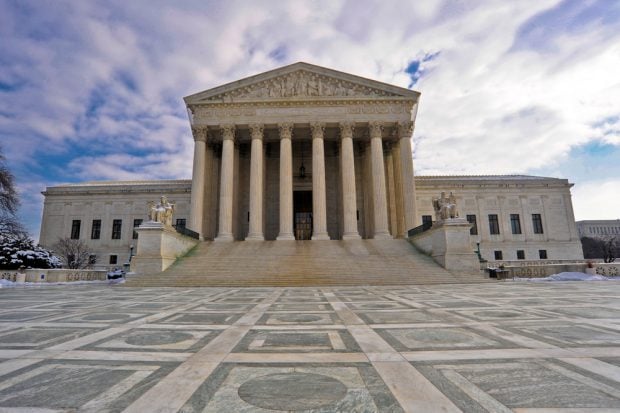 You may have heard rumblings about the credit uniontax exemption being up for debate yet again. It's a debate we'veseen before and a cause we've defended before. Unfortunately, theso-called controversy never really left us. Time and again, bankshave tried to use the argument that credit unions are unfairlybenefiting from their exemption from federal corporate incometax.
You may have heard rumblings about the credit uniontax exemption being up for debate yet again. It's a debate we'veseen before and a cause we've defended before. Unfortunately, theso-called controversy never really left us. Time and again, bankshave tried to use the argument that credit unions are unfairlybenefiting from their exemption from federal corporate incometax.
What the repeated attacks from the bankers always fail tomention is that nearly one-third of all banks are Subchapter Scorporations which pay no corporate income tax.
|Despite the repetitiveness of the debate—and the déjà vu feelingof each new attack from bankers—we have to stay strong in ourcommitment to defending the credit union tax exemption.
|Why? Because it's the bedrock of our existence.
|Among the many issues NAFCU focuses on is the increasing burdenon credit unions from overregulation. More than 700 credit unionshave closed their doors since the passage of the Dodd-Frank Act in2010. But while overregulation is thinning our ranks, theelimination of the credit union tax exemption would wipe us outalmost completely. The banks would win.
|And it's not just about us and the banks. It's not even justabout our member-owners—it's about the economy as a whole. A yearago, NAFCU commissioned an independent study which showed thateliminating the credit union tax exemption would shrink the GDP,result in a net loss of revenue to the federal government andeliminate 150,000 jobs a year over the next decade. On the flipside, keeping the exemption benefits the economy as a whole: thecumulative benefit credit unions generate for theeconomy—non-credit union members included—is more than $10 billiona year.
|If banks win, this benefit goes away, which would be adevastating consequence for consumers and the economy. Banks thatare already too big to fail will just get bigger. According to aneditorial from Bloomberg, big banks—instead of having learned theirlesson after the crisis—in fact have more incentive to get andremain big: “The larger they are, the more disastrous their failurewould be and the more certain they can be of a government bailoutin an emergency…the banks that are potentially the most dangerouscan borrow at lower rates, because creditors perceive them as toobig to fail.” In fact, according to the Federal Reserve, five ofthe biggest banks in America—including JPMorgan Chase and GoldmanSachs—held 43% more assets in 2011 than they had five yearsbefore.
|And if the credit unions that kept lending to consumers andsmall businesses during the financial crisis aren't there anymore,the banks are unlikely to fill that role themselves. According to areport from the Special Inspector General for the Troubled AssetsRelief Program, when the Treasury Department offered a smallbusiness lending fund program for banks, more than one-third of theparticipating banks used most of the money—$4 billion overall—tohelp extricate themselves from the TARP instead of using it to lendto small businesses. Consumers can't trust banks to behave anydifferently in the future. Banks will lend less, raise fees andkeep getting bigger if credit unions aren't there to provideconsumers with options.
|History is not just repeating itself with this debate—this timeis different. Senate Finance Committee Chairman Max Baucus(D-Mont.) and House Ways and Means Committee Chairman Dave Camp(R-Mich.) have been traveling the country promoting tax reform, andlooking for ways to cut tax expenditures.
|NAFCU's Congressional Caucus, going on this week, is ouropportunity to make the credit union community's voice heard—toremind lawmakers that in this age of sequestration and cutbacks,the country can't afford to cut back on credit unions and the goodthey provide to communities.
|Since the Great Depression, credit unions have been serving thecommunities in America that no one else would serve. We justsurvived the worst financial crisis since that time; now is not thetime to forget the value credit unions hold for America. We can'tlet our representatives in Congress forget either.
|Don't let our voices be drowned out by the desperate attacksfrom bankers. Join the call to preserve the credit union taxexemption and, through it, the important role credit unions play inAmerican communities.
|Our existence is on the line.
|Dan Berger ispresident/CEO of NAFCU.
Complete your profile to continue reading and get FREE access to CUTimes.com, part of your ALM digital membership.
Your access to unlimited CUTimes.com content isn’t changing.
Once you are an ALM digital member, you’ll receive:
- Critical CUTimes.com information including comprehensive product and service provider listings via the Marketplace Directory, CU Careers, resources from industry leaders, webcasts, and breaking news, analysis and more with our informative Newsletters.
- Exclusive discounts on ALM and CU Times events.
- Access to other award-winning ALM websites including Law.com and GlobeSt.com.
Already have an account? Sign In
© 2024 ALM Global, LLC, All Rights Reserved. Request academic re-use from www.copyright.com. All other uses, submit a request to [email protected]. For more information visit Asset & Logo Licensing.









